ICT integration in the classroom: eTwinning
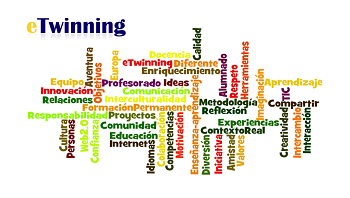
Anabel Carrasco Romero, a Primary Education Undergraduate student at the Faculty of Education of Ciudad Real (University of Castilla-La Mancha) sets out some interesting reflections on eTwinning, the subject chosen for her Bachelor thesis, as a tool to meet the technological challenge in today’s classrooms.
It had been four years since I started the Primary Education degree at the Faculty of Education of Ciudad Real at the University of Castilla-La Mancha, and this Bachelor thesis represented the ultimate challenge in order to finally become a teacher.
ICT caught my attention from the very first moment, since if anything characterizes this century it’s the great impact that technology has on all areas of society and, therefore, in school, too. But as we all know, the world of new technologies is too broad a subject. Where should I direct my research?
The truth is that I barely knew eTwinning, but I knew enough to understand that this was something different, something special. And finally it turned out to be my choice.
Guided at all times by my Bachelor thesis director, Professor Fernando Castro Fernández, it was based on the need of how to respond in the world of education to the technological demands imposed by society, because as the latter progresses and evolves, so should teaching too. In this sense eTwinning fitted the bill perfectly. Furthermore, this innovative initiative not only seeks to address digital literacy in the classroom, but also to increase the feeling of belonging to Europe and how to accommodate collaborative work. And all this in order to train pupils for the world they’ll have to face, not only at work, but also socially and culturally, where mastery of foreign languages is of fundamental importance.
The Miguel de Cervantes Primary School in the town of El Toboso, and in particular the Castilla-La Mancha eTwinning ambassador, María Jesús Parra, allowed me to look at one of her projects so I could have a direct and real experience to carry out my research. So once I’d understood the basic working of eTwinning, I proposed the three aims I sought to achieve with the research:
- Publicise the eTwinning educational action.
- Illustrate a quality project implemented.
- Confirm the degree of satisfaction generated among pupils and teachers after the implementation of these types of projects in the classroom.
As pointed out above, the first point of my research consisted of an exhaustive search for information, examining, comparing and contrasting different bibliographical sources in order to fully understand where the eTwinning initiative comes from, to find out its fundamental objective and how it works, and to get to know its organizational structure.
Secondly, I decided to examine The Genius’ Log, the eTwinning project chosen to carry out this Bachelor thesis. A total of 13 schools from different countries in Europe participated in it. It lasted two school years and although all the school pupils participated to a greater or lesser extent, it was mainly aimed at pupils in years 5 and 6 of primary education. All the curricular subjects were also involved, but especially art, history, new technologies and English.
To comply with the third aim of this Bachelor thesis I collected information using tools such as questionnaires and interviews that were used with pupils and teachers. The results of the analysis confirmed that the eTwinning project enjoyed excellent acceptance by both parties and reflected the desire and interest to continue working with this innovative methodology, generating the benefits I’ve set out below:
- It facilitates enjoyable teaching and learning.
- It contributes to increased motivation.
- It makes it possible to acquire new knowledge.
- It encourages the training of pupils in all core competencies.
- It improves academic performance.
- It helps develop the skills needed for real life.
- It provides education in values and for multiculturalism.
- It provides a feeling of supranational identity.
- It generates interest in mobility between countries.
- It creates bonds of friendship.
Carrying out this research allowed me to understand the great challenge posed for schools to adapt to the profound, rapid and constant changes we’re experiencing in our environment, ensuring the acquisition of knowledge, skills and attitudes needed to live in the new knowledge society, and making the subject matter attractive in the eyes of pupils, which is another challenge for any teacher. In this sense, it’s absolutely necessary for teachers to be committed to their work, going to great lengths in the acquisition, renovation and expansion of skills, knowledge, abilities and competencies, both for personal and professional development, and to educate future generations. And this is something that must start with the initial teacher training and continue throughout their life, as our ongoing training plays a decisive role.
Presentation for Bachelor thesis on eTwinning.
Anabel Carrasco Romero
Primary Education Undergraduate Student
Faculty of Education of Ciudad Real
University of Castilla-La Mancha
Interviews
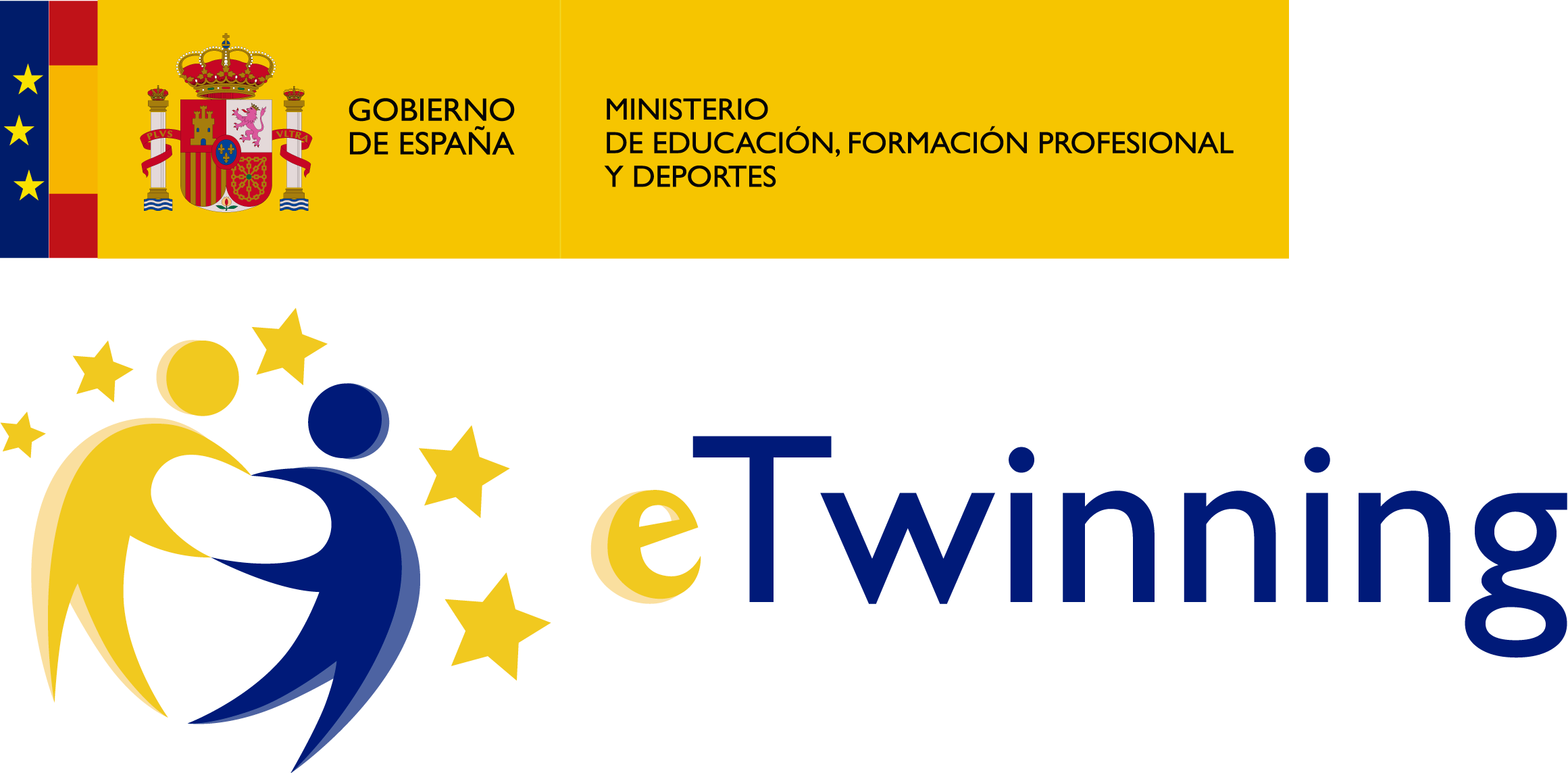
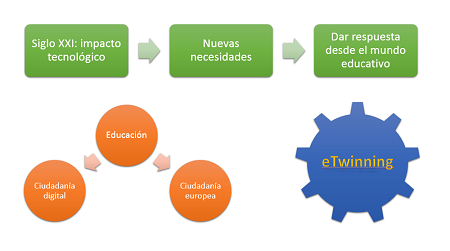
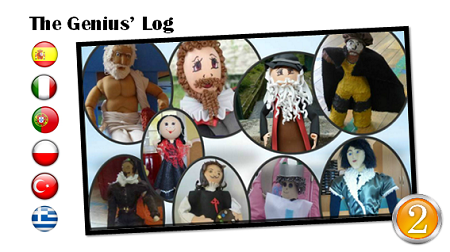



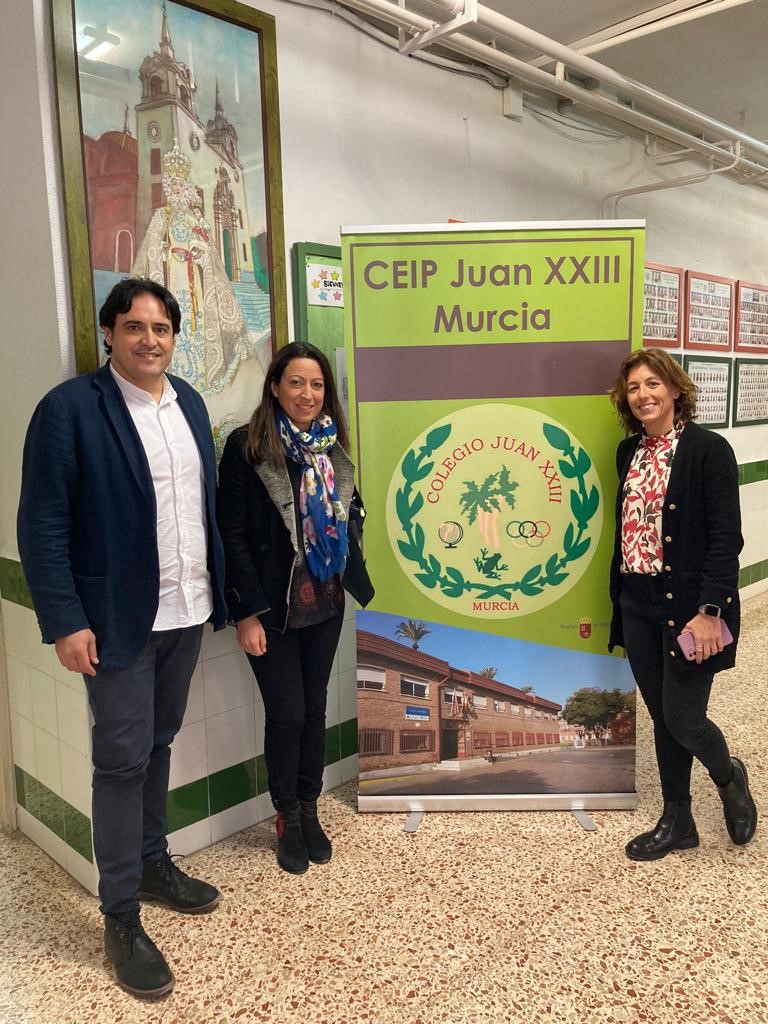

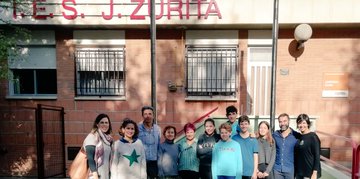
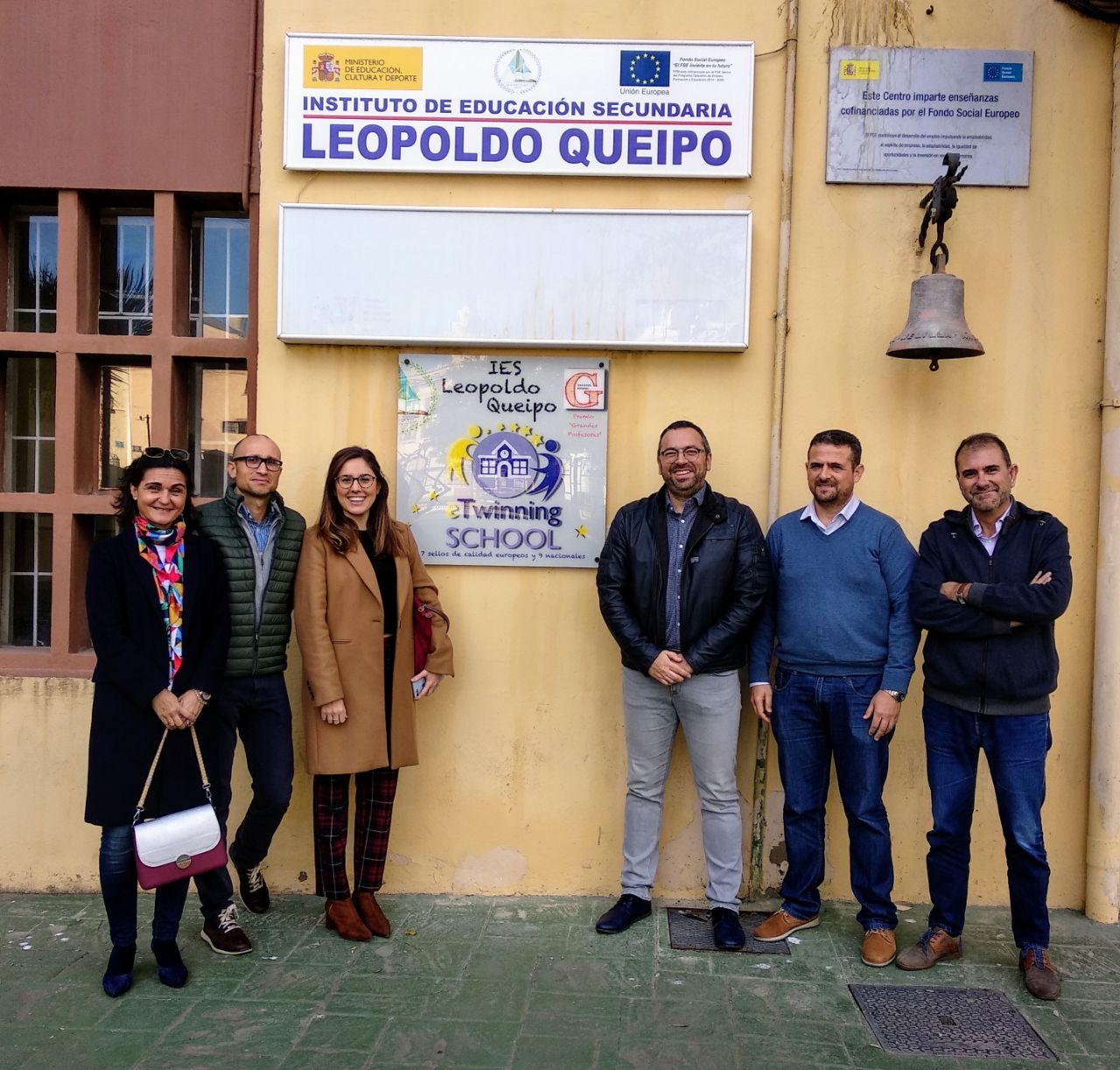

Reglamento de protección de datos (información básica)
En cumplimiento de la normativa de protección de datos personales, le informamos de que sus datos serán incorporados al tratamiento denominado “eTwinning participación”, cuya finalidad es la participación en el proyecto de colaboración europeo eTwinning.
Puede usted ejercitar los derechos de acceso, rectificación, oposición, supresión (“derecho al olvido”), limitación de tratamiento y portabilidad y a no ser objeto de decisiones individuales automatizadas que sean de aplicación de acuerdo a la base jurídica del tratamiento. Podrá hacerlo en la sede electrónica del ministerio (http://www.educacionyfp.gob.es/servicios-al-ciudadano-mecd/catalogo/educacion/varios/proteccion-datos.html), presencialmente en las oficinas de registro o por correo postal.
Al rellenar y enviar este formulario usted concede su consentimiento inequívoco para el almacenamiento de sus datos en nuestros ficheros tal y como se especifica en nuestras normas de privacidad.
Normas de privacidad
NOMBRE DEL TRATAMIENTO
eTwinning participación.
FINALIDAD
Participación en el proyecto de colaboración europeo eTwinning.
RESPONSABLE
Dirección General de Evaluación y Cooperación Territorial del Ministerio de Educación y Formación Profesional
C/ Alcalá, 34; 28014-MADRID.
DELEGADO DE PROTECCIÓN DE DATOS
Subdirección General de Atención al Ciudadano, Documentación y Publicaciones.
c/ San Agustín 5, 28014-MADRID
dpd@educacion.gob.es
PLAZOS O CRITERIOS DE CONSERVACIÓN DE LOS DATOS
Sus datos se conservarán durante el tiempo necesario para la tramitación y respuesta de su solicitud. Además, será de aplicación lo dispuesto en la normativa de archivos y documentación.
DECISIONES AUTOMATIZADAS
No se realizará toma de decisiones individuales automatizadas basadas en la información que usted nos proporciona.
PLAZOS O CRITERIOS DE CONSERVACIÓN DE LOS DATOS
Sus datos se conservarán durante el tiempo necesario para la tramitación y respuesta de su solicitud. Además, será de aplicación lo dispuesto en la normativa de archivos y documentación.
LEGITIMACIÓN O BASE JURÍDICA DEL TRATAMIENTO
El tratamiento es necesario para el cumplimiento de una obligación legal aplicable al responsable del tratamiento, artículo 6.1e) del RGPD, Reglamento UE 2016/679, y en la Ley 8/2013, de 9 de diciembre, para la mejora de la calidad de la enseñanza.
DESTINATARIOS
Departamentos de Educación de las CC.AA que llevan proyectos europeos, para distintas gestiones, como la tramitación de permisos ausencia del centro, envío de información relevante, etc.
DERECHOS
Puede usted ejercitar los derechos de los artículos 15 al 22 del RGPD que sean de aplicación de acuerdo a la base jurídica del tratamiento. Podrá hacerlo en la sede electrónica del ministerio, presencialmente en las oficinas de registro o por correo postal.
AUTORIDAD DE CONTROL
La autoridad de control en materia de protección de datos personales es la Agencia Española de Protección de Datos (http://www.aepd.es).
CATEGORÍA DE DATOS PERSONALES
Los datos personales que se tratarán son los que figuran en el formulario que usted nos proporciona.